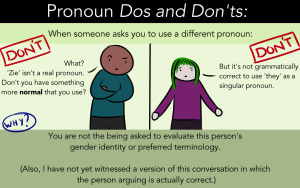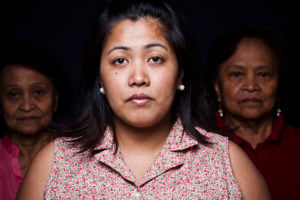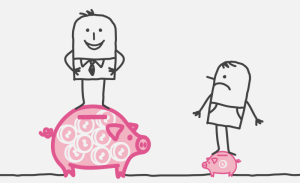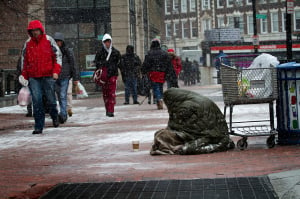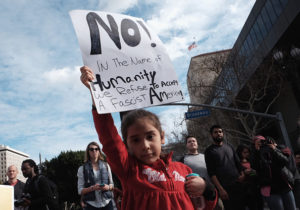
Young person holding a sign that reads “No! In the name of humanity, we refuse to accept a fascist America” during the Women’s March in Los Angeles.
When I first heard about the Women’s March on Washington in the weeks after the election, I knew I wanted to go.
I also knew I wanted to take my daughter.
I couldn’t imagine going without her. She may only be on the cusp of turning seven, but I knew how formative this experience could be for her.
In those early days, as we watched the march come together and go through its growing pains, I booked a hotel near the airport and found flights and train tickets to and from the capital. I figured out which friends would be marching, and we worked together on a plan.
And in January, my little first grader and I marched together, along with a million of our allies and peers, to tell President Trump that his behavior won’t go unchallenged.
It was an incredible weekend.
She was tough and brave in the crowds, never once becoming overwhelmed by the mass of people. She marched with a dozen or so of my friends, who circled around her when she needed a break and helped me carry her when she couldn’t go on.
She asked me about the meaning of the different chants she heard. Her favorite was “We want a leader, not a creepy tweeter,” and I teared up when explaining “This is what democracy looks like.”
She was surrounded by so much love and affection and strength and intelligence.
While the march was in no way perfect (more on that later), the experience of bringing my daughter with me was powerful – not just to me, but for her.
For the most part, my friends and family were able to recognize why I would want take her along with me. They cheered her on and complimented the sign she made.
But when the march was larger than anyone expected, and when the backlash started coming from many different sides, I found that I wanted to make it clear that I didn’t take my daughter to the march for some flippant reason.
I took her because it was important for her to be there with me.
Here’s why.
1. Children Are Affected By Policies Just as Much as Adults Are
I don’t want my children to know how much I worry about their future, but it’s undeniable how much this presidency could shape their everyday experience for the next several decades.
My friends and I often talk about how politics affects us, but we can’t ignore that our children are going to be affected even more.
When I thought about the Women’s March as a way for people to come together to protest how Trump’s policies will hurt people of all a/genders, I had to include children in that.
They announced that the march would be family-friendly, and I decided to trust that. I knew there had to be other parents who would be taking their children.
By including our children in the march, we were reminding the US that these children are affected by all of his decisions about taxes, health care, immigration, jobs, and so on.
Every political issue affects children, not just education.
2. She Recognizes the Danger of Someone We Can’t Trust Being in Charge of the Country
My daughter is a little bit unusual in her political leanings.
Starting in kindergarten, she begged to watch every political debate, from the GOP events with tons of candidates on the stage to the very last presidential debate.
In the earliest days of her interest, we tried to keep ourselves from giving her our points of view, especially on the Republican candidates. “Who do you like?” we asked her. “Which one do you think should run for president?”
We taught her about the primaries and the election, and she had strong feelings each step of the way.
Early on, when she watched Donald Trump in the first debate, she turned to me and said: “Is that man…weird?” Yes, honey. He’s weird.
We didn’t think, at that point, that he would be president, and so we spent little time talking about him beyond that.
In the months that followed, she heard Trump speak in all different contexts. We tried to explain things as best as we could, but her conclusions were plain and obvious: That man is a bully. That man is rude. That man is unkind.
She knows that rude, unkind bullies are not the people you should trust. She doesn’t trust them on the bus to school, and she doesn’t trust them in her classroom.
And she definitely doesn’t trust them to be in charge of the country.
3. It was a Chance For Her to Be in a More Diverse Environment Than Her Daily Life
We live in rural Indiana, and seeking out diversity is a conscious effort.
She may have a gay grandpa, Nepalese cousins, disabled friends, and so on, but our community is predominantly white, straight, cisgender, able, and conservative.
The march has earned criticism for being centered in whiteness and less intersectional than it should have been, and there are a lot of ways people are responding to that.
My hope was that white feminists learn more about the importance of intersectionality if they were unfamiliar with it before the march.
I knew, though, that taking her to the march would be a chance for her to be surrounded by hundreds of thousands of people, many of whom don’t look, sound, or dress like the people she sees daily in central Indiana.
As adults, our responsibility for promoting intersectionality differs from children’s responsibility.
For her, at this stage of development, the most important thing I can do is make sure that she sees people. That she gets to know people who are different than her. That she develops positive associations with groups that she isn’t a part of.
The march was imperfect in many ways when it comes to this issue. Indeed, the feminist movement (especially in this pivotal moment when it’s growing exponentially) is often problematic in how it deals with issues of intersectionality.
For a child from Central Indiana, it was a first step in the right direction.
4. She Needs to Know Women Are Powerful
We’re a TV-watching family.
At three, my daughter started complaining about the way that most shows only included a single girl character. “They need more girls!” she would say when she watched Goonies or Paw Patrol or Transformers: Rescue Bots. “Why aren’t there more girls?” she asked. “Where are the girls?”
When she started watching the debates, she looked at the stage of men and Carly Fiorina and said, “Don’t there need to be more girls up there?” And when she looked at a poster of all the faces of all the presidents, her jaw dropped open and she said, “There has never been a girl?!”
When I voted for Bernie Sanders in the Indiana primary, she was furious with me for not choosing Hillary Clinton.
I explained that I was voting, for the first time in my life, for an anti-war candidate. I let her know that voting this way was important to me, but that we’d have a chance to vote for Hillary Clinton in November.
She made necklaces out of polymer clay with Clinton’s logo on them, and on election day, she wore her “I Voted” sticker to school with pride. When I had to wake her the next morning to tell her that Trump had won, she was very quiet.
“Oh,” she said. She likes to keep her emotions private, and I could see that she was struggling with how to respond. A few times over the next few days, she asked for a hug, unprompted.
I could tell she was sad.
I didn’t want her to think this was okay. It’s not right that a dangerous, vulgar, crass, unqualified man won a national election over a qualified, intelligent, accomplished woman.
It’s not right.
In deciding to march, I wanted her to be able to make her voice heard that this isn’t right. Women do have power, and we oppose situations in which they are defeated by sexism.
5. She Needs to Know We Aren’t Alone in Our Concerns
As I’ve mentioned, we live in Central Indiana.
We were surrounded by Trump signs and flags before the election, and she has family members she loves who voted for the guy.
Sometimes it’s hard for those of us in “red” states to see that we’re not alone.
I knew taking her into a crowd of people who are our political allies would remind both of us that we are not alone.
I could not have predicted the massive scope of those crowds, or the parallel events all over the world, but my gut was right. By the end of the day, she felt excited and unified with all of these other people who share our beliefs.
6. I Want Her to Feel Empowered, Not Fearful About the Future
Children have intense reactions to injustice.
Sometimes, they react strongly to perceived injustice, like when it looks like a little sibling took a bigger piece of the cookie.
But often, they recognize when something is deeply unfair on more important levels.
As an adult, when I feel powerless to stop an unjust situation, I am often bogged down by it, and I’m an adult. I have money to spend, platforms to speak from, and access to as much information as I could ever want.
I can’t imagine how powerless it must feel to be a kid in this world.
Sure, she doesn’t know all the potential ways that Trump’s presidency could hurt us, but she can sense the fears of the people in our lives who are most affected by his policies.
Marching was about acting rather than sitting there feeling powerless.
7. Someday, Trump Will Be History
When she’s grown and looks back on this time in our country’s history, she’s going to say – along with her peers – to all of us who are now adults, “What were you thinking?”
I believe that the election of Trump will be one of the things our country should be most ashamed of.
By taking her to this march, I know she will always remember that people advocated against this president, and she got to be a part of it.
8. I Want Her to See That Losing Doesn’t Mean You Have to Give Up
This is the single most important reason I took my daughter to the march.
Some people have said about the election, “You lost. Get over it.”
I won’t pretend that seeing Hillary Clinton lose was painless, but this is about so much more than her loss. It’s about Trump’s victory. It’s about what it means that people voted for him.
The thing is, we did lose. Those of us who want to see a more inclusive, more peaceful, and more progressive vision of the US lost.
There are a lot of reasons why we lost, but we did. But losing doesn’t mean giving up.
I’m not talking about clinging to old hopes like a Sanders or Clinton presidency. Rather, I’m talking about moving the vision forward.
Trump is our president now. We have to decide what happens next.
***
I want my daughter to know that losing doesn’t mean surrender. It doesn’t mean hopelessness.
It means, “We lost this one, so how do we make sure that the world keeps changing for the better, even if Donald Trump is president?”
Marching was part of that.
It was a crowd of people saying, “We won’t give up on the US.” She saw that for herself in Washington, and I’m so glad I took her with me.
[do_widget id=’text-101′]
Liz Boltz Ranfeld is an English professor and writer in Indiana. She has written for Persephone Magazine, Relief Journal, the Shriver Report, Faculty Focus, Jezebel, and Salon. You can find her online on Facebook.
Search our 3000+ articles!
Read our articles about:
Our online racial justice training
Used by hundreds of universities, non-profits, and businesses.
Click to learn more





